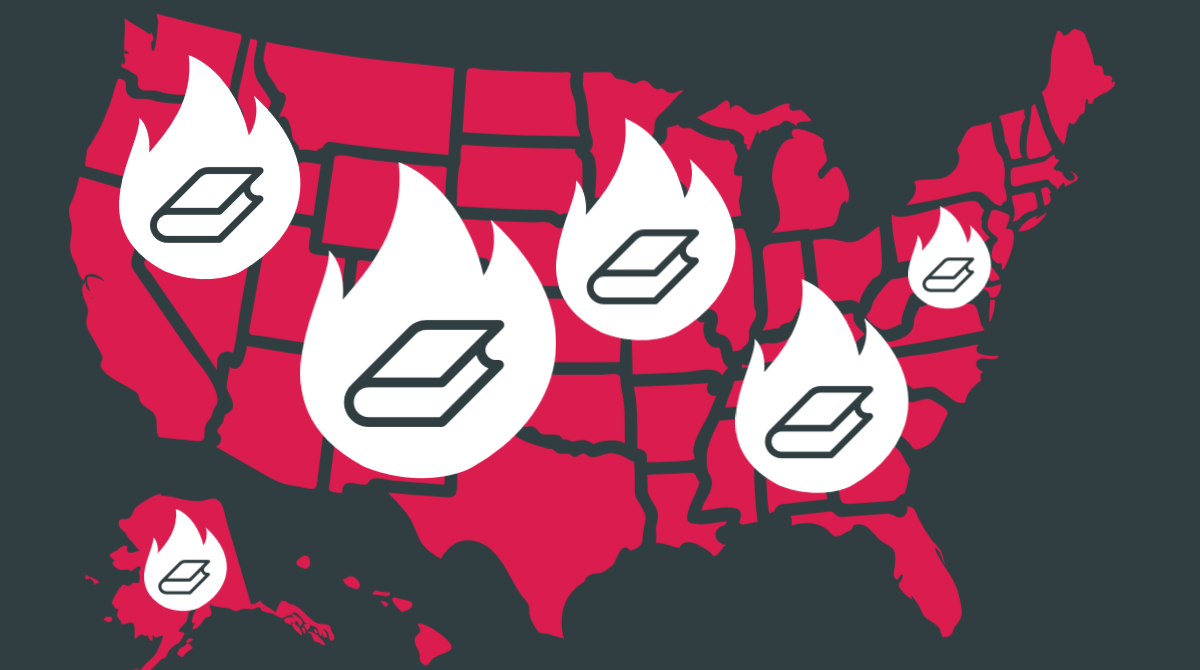Libraries and schools across the country are experiencing unprecedented levels of attempts to ban or remove books from their shelves. I Love Libraries will continue to raise awareness by highlighting attempts to censor library materials, as well as efforts by librarians, parents, students, and concerned citizens to push back against them. This report includes news from Colorado, Utah, Florida, and a look at state efforts to ban book bans.
Bill to prevent book bans in public libraries advances in Colorado
The Colorado House considered a measure on Monday that is intended to prevent book bans in libraries across the state, reports KDVR TV.
Called “Standards for Decisions Regarding Library Resources,” the bill would ensure public libraries have written policies for retention, acquisition, display, use of library resources and use of a public library facility. It was sponsored by three Democrats.
Under the bill, libraries could not remove content based on the author’s demographics or “partisan disapproval of the topic.”
“Librarians work hard to provide their patrons with an inclusive array of materials, but culture war extremists are attacking them trying to deny other library-goers materials and programming they don’t agree with,” primary sponsor Sen. Lisa Cutter said in a release. “As more states move to ban books and limit citizens’ freedoms, we have to protect free speech and ensure access to information in Colorado. This bill protects librarians and ensures libraries remain welcoming and enriching spaces for all.”
Some Utah school districts chopping books before July book ban law
Several school districts in Utah have already begun removing books from their shelves in preparation for a new law that creates a pathway for school book bans, reports News Nation.
Utah’s governor signed HB29 into law last month, which would create a protocol for books to be banned statewide if at least three school districts or at least two school districts and five charter schools determine a book is “objective sensitive material,” or has material that is “pornographic or indecent” defined under state law, reported Utah News Dispatch. The law expands upon HB374, a law passed in 2022 that allows parents to challenge “sensitive materials” in schools.
HB29 will go into effect July 1, and several districts are already undertaking their own inquiries and removing books under the 2022 law, reported the “Utah News Dispatch.”
Florida community publicly reads banned books
In the plaza in front of Gainesville, Florida’s city hall on April 19, a crowd of about 100 people listened to stories that their children or grandchildren may be barred from hearing in school, reports WUFT.
Hosted by the Unitarian Universalist Fellowship Social Justice Council, the “Banned Book Read Out” brought 10 people to read aloud excerpts and poems from books banned or challenged by the state of Florida or works that have been challenged in the past. Topics included literature exploring African Americans, antiwar themes, and the Holocaust. Attendees were also given the chance to take home a banned book.
“We are here today speaking out against the banning of books that tell the true history of our country and document the experiences of all those who suffered from these oppressions in the past and currently,” Zoharah Simmons, an activist during the Civil Rights Movement and a former University of Florida professor, said during the event.
Democratic-led states lead pushback on censorship. They’re banning the book ban
A movement to ban book bans is gaining steam in several states, in contrast to the trend playing out in more conservative states where book challenges have soared to their highest levels in decades, reports the Associated Press.
Minnesota is one of several Democratic-leaning states where lawmakers are pursuing bans on book bans. The Washington and Maryland legislatures passed them this year, and Illinois did so last year. It was also a major flashpoint of Oregon’s short session, where legislation passed the Senate but died without a House vote. A version pending in New Jersey would protect librarians from civil or criminal liability.
Some proposals are labeled “Freedom to Read” acts.
“That’s what’s so critical here. The voluntary nature of reading,” said Martha Hickson, a librarian at North Hunterdon High School in Annandale, New Jersey. “Students can choose to read, not read, or totally ignore everything in this library. No one is asking them to read a damn thing.”
Subscribe to the I Love Libraries newsletter! You’ll get monthly updates on library news, advocacy updates, book interviews, book info, and more!


